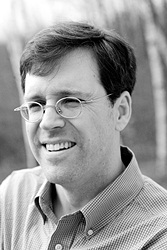
A collaborative squash novel featuring eleven writers.
BREAKING GLASS
Chapter THREE by James Zug
Tyler
Wolf thought he was awake, but he wasn’t sure. It was still dark. The
world was a velvety black curtain drapped over his mind and body. No
light at all. He lifted his right arm to rub his eyes, but his arm
didn’t move. Nor his left arm. They were bound in heavy tape to his
side. He was wrapped like an otter in seaweed. This is going to be a long night. If it was night. How long had he been asleep, he wondered? His mind raced through what had happened. He was talking to Shelley, the knock on the door and this incredible scene with his luggage, flashing cameras. Then it went into slow-motion: walking down the muffled, carpeted hall; taking the elevator, the three of them, no one saying a word; leaving the hotel flanked by the goons; getting into the back of a grey, unmarked car. It was all so normal and yet surreal. And then? What had happened? An itch in his leg reminded him—one of the policemen had jabbed him in the thigh with something. Since then, a blank.
He could hear the clang of metal meeting metal, a screen door shutting, muted laughter, the rumble of a truck going down a hill. It was hot. He was still in Rio, but this wasn’t a prison.
The Copacabana Squash Club was a vibrant health club near the favela do Morro dos Cabritos. It had an excellent view of the beach and the jutting, forested hills of Rio. A backpacking Australian had built the Copa in the late seventies on a lark. This was long before the World Cup and Olympics had swum into view. After a couple of decades, the Aussie missed surfing on the Gold Coast too much and sold it and returned home. The new owners increased it to six courts, glass-backed, with marine blue and green walls. A mix of expats, stony-faced government officials, disheveled filmmakers and sheveled real estate magnates were members.
The renovations hadn’t completely smothered the club’s infamous unzipped scene. The Copa had a co-ed locker room, co-ed showers, co-ed steam room. Members had their own white terry-cloth bathrobes, their name embroidered on the sleeve, and it was common, Allenby had heard, for late-night, slightly impaired visitors to the locker room to squabble over who got to sheath their naked body with the mayor’s robe.
It was mid-morning. Allenby had slept late and rushed over to the club. The cattle-call, the moment when all the qualifiers stood in a court and the qualies draw was made, was due in forty-five minutes. If you were a minute late, the draw was closed.
Two players were on court hitting. It sounded like loafers in a dryer—bang, bang-bang. The other players were milling about the club, most on their cell phones updating their Facebook news feeds and tweeting and retweeting each other’s tweets. Some had earbuds dangling from their shoulders like thin white snakes. Very few were talking to each other. A new surliness had descended upon the pro tour after the IOC selection. Agents, sniffing out money, had snapped up everyone in the top fifty, and suddenly many of the players had entourages: managers, physio-therapists, coaches. The stakes were rising. The old friendliness was fading.
“Where is Wolfie? Allenby asked Carlos Paulo, the club’s manager. “He’s got that interview with NBR."
“I’ve heard nothing,” said Paulo with a sigh. Unlike Allenby, he had been at the club since 5am. “I’ve sent him a couple of texts but nothing since he arrived last night. His flight from Sydney was pretty awful, so he’s probably asleep still. You know how these players sleep until noon.”
“What about about Perez? Still no word?”
“None of the girls have any ideas. I’ve checked her Facebook and Twitter. All blank.”
“Where the hell is everybody?” Allenby said irritably. He needed coffee.
“Maybe she’s caught in the security at the airport?” Paulo said hopefully. Since the nightclub fire in Santa Maria the year before, a new set of protocols for any public gathering place had been implemented and this meant it took an interminable time to get through immigrations, customs and security checkpoints at Galeao International Airport.
“This was so typical of a tournament,” Allenby said as if teaching Paulo a lesson. “There are big crises and small crises. It is like a wave, first one and then the other. Wolfie I can deal with but Perez, I’ve got to have her.”
An enigma wrapped inside a mystery, Perez had come out of nowhere. She was muscular and quick and didn’t speak a word of English. She never played on the junior circuit. She never came to Sheffield or Cambridge for those sprawling junior tournaments. Then, a year ago, she got a wild card in an event in Bogota and reached the finals.
She was a hiccup shooter: unexpected and continual. Every time she touched the ball, she hit a dropshot. She ripped off the volley cross-court smash on every possible service return. Literally every single time. It got so bad that opponents served the ball short and at her, bodyline, rather than the side wall, just to prevent her from shooting. She loved to see if she could smack a dropshot from that back corner or while backpedaling or twisting.
Perez also had a two-hand backhand which was awful, totally unsuited for her aggressive play. She said this was a remnant of her tennis-playing days. It was a quirk that Erika Hoskin, her coach since Bogota, had tried to fix. Hoskin was very private about Perez. All coaches were like that, territorial over their troops. Hoskin had gotten her to wear sneakers, that was an accomplishment—apparently in the Bogota tournament she had played barefoot.
Allenby fired off another email to Hoskin and texted Perez. He then scrolled through his Twitter feed for the first time that morning. Buckler had posted something late last night: “Tyler Wolf arrested on drug charge in Shelley Anderson’s hotel room taken away no warning #braziliansquashopen ‘That's not mine,’ he yelled.”
On tour, among the wandering international tribe of squash writers, photographers, broadcasters and officials, Buckler was famous for many things. He always demanded his own hotel room—“for equipment,” he said. He smoked two packs of Belomorkanals a day. He hated squash itself. He didn’t play, unlike nearly everyone else in the tribe. He never watched the matches live, preferring to talk to sources—coaches, loitering referees, hangers-on—in the crowd; he viewed the matches in silence on his computer the next morning, when he knew the outcome and could see the narrative. He perpetually looked like a professor of some ‘ology just back from months of field work. Straggly grey hair spouted like kudzu all over his body. And there was the Buckler Beard. After the first ball of the qualies was struck, he didn’t shave until the finals were over. He was like a goddamn ice hockey player in the Stanley Cup playoffs. Every tournament, he did this. A spasm of self-hatred was the explanation, Allenby thought.
Buckler always tweeted the maximum characters on Twitter, not one less. He hated wasting something free. Allenby didn’t even need to count do know this tweet about Wolfie was exactly 140.
Through the window, Allenby saw Buckler on the sidewalk, smoking a cigarette. He got himself a cup of coffee from the bar and went outside.
“What’s this about Wolfie getting arrested?” he asked.
“Oh, hey, Johnny. Didn’t you read my report on SmashingBalls,” Buckler said.
“No, I haven’t,” Allenby said, adding, “yet.” He loathed the website: a badly-presented farrago of gossip and innuendo and overly-detailed analysis about equipment.
“Oh,” Buckler said, smoke clinging to his eyebrows like fog on a Pacific Redwood. The Belomorkanals were reputed to be the strongest cigarettes in the world. Allenby thought it was just an affection, Buckler’s way of drawing attention to the fact he lived in Russia in the nineties. No one knew exactly what he was doing over there. “I see. Well, basically, I saw the whole thing happen. I came up on the elevator with the cops. I’ve been working on this story, you know, for a long time now, back to last year when we were getting into the Games.”
Allenby winced at the “we”. Buckler was helping no one but himself. He gave him a basilisk stare. His face was clean-shaven. The Beard was going to begin.
Buckler went on: “You know, it’s about doping. They had Wolfie’s luggage and a bag of pot of the found int, but I don’t think that was the whole thing. I mean, Wolfie wouldn’t fly into Brazil with pot."
“Coal to Newcastle,” Allenby said, showing off the full extent of his knowledge of Anglo slang.
Buckler exhaled as if he had been holding his breath. “When the Lance Armstrong story wrapped up with him going to jail, I started looking into doping in squash. Turns out there was something there. The players all said they were tested by their own national associations, but when I researched this, most associations weren’t doing it—they assumed the WST was testing. We assumed they were. Who’s on fucking first, here boys?” Buckler smiled. He was happy to toss some American slang back at Allenby. “So only a few were getting tested and even those were not for Erythropoietin.”
“For what?”
“Erythropoietin,” Buckler said, relishing this opportunity to educate Allenby. “EPO. Blood doping, my friend. These guys are doing EPO and growth hormones, blood transfusions. Most associations just test anabolic steroids. Really. Who besides from Hungarian weightlifters do steroids now? Some contacts here in Brazil told me that Wolfie was deeply involved. You know those Aussies, they’ll do anything to win.”
And so will the Canadians and Brits and Peruvians and Egyptians, thought Allenby as he sipped his coffee. So will everyone. “And with Wolfie thirty-six, on the verge of retirement, it makes sense,” he said. But did it?
The phone vibrated on the glass table like a sheep bleating. Shelley Anderson looked out at the beach. The southeast breeze skimmed the waves along the sand like pinwheeling, spiraling knives. She put her glass of wine down, shaded her eyes and picked up her phone. It was a 41 21 number. Lausanne.
“Yes,” she said hurriedly, her lips barely open. “We got the court out of customs, Rhodanie. It’s alright.”
“”What the hell happened?” said Rhodanie.
“I don’t know. Someone tipped them off. We used to get the satellite dish impounded, that happened in Egypt once, but never the panels and lighting. They knew.”
“How? How’d they know, Shel?”
“I haven’t a clue. You’re supposed to be the one with all plans. You’re the brains behind this. But they knew it was in the container. I am sure.”
“Why are you sure?” Rhodanie repeated.
“The head of security. He told me. He came to the hotel yesterday. We had a conversation. I had to pay him off, in cash. And kind.”
“That’s good of you. We appreciate that, Shel. But we are not in the clear yet. Far from it. If you can’t make this happen, we’ll move someone else in.”
Shelley stopped and took a slow sip of her wine. Then she began fiddling with the spoon on the table, trying to get it to stand on edge. “Listen, Rhodanie Maison, don’t threaten me. I am not a jillaroo. I know what I’m doing. I know how to make this happen.”
“I’m sure the head of security thought so, Shelley Anderson.” So it was back to full names.
“Please. Don’t be disgusting. I’ll get this done. The court is almost up. Allenby is clueless. The qualies begin this afternoon. Once the main draw starts, then we can move.”
“What about Wolfie? What about Buckler?”
Anderson didn’t think he knew about Tyler Wolf’s arrest. “Buckler’s a hairy stickybeak. I can put him off the scent with a few new racquets he’s never heard of. That is easy. And no one reads SmashingBalls anyway. Tyler, well, he’s a problem. I can’t find him.”
“What?”
“I went down to the police station this morning but they said he wasn’t there. They have no record of his arrest. It’s incredible. I’ve made a few calls. I’ve got a lawyer friend looking into it. No one knows anything. The Wolf has disappeared. Poof.” The spoon clattered off the table.
“Really,” Rhodanie said, spacing his words out, “that is not good. Not good at all. Australian kidnapped in South America.”
“Buckler was there when they nabbed Tyler. Maybe he can tell me more about the guys who took him away. Maybe he’s got some photos of them.”
“It is amazing how quickly this has gotten bollocks up.”
“I told you, Rhodanie, that’s the squash world. They’re nice people but they don’t know how to play with the big boys.”
There was silence on the line. Anderson looked at her watch.
Rhodanie asked, “Where are you now?”
“I’ve just had lunch. Got to go,” Anderson said. “I’ve got a tennis game this afternoon. Doubles. With a couple of old friends. They owe me a favor.”
“You’re still playing?”
“Sure. You don’t think I’m going to go inside and play squash when I am in Rio? That’s not good for my tan.”
Tyler Wolf was swimming headlong through a fever-dream. He thought he was asleep, at least, but then he realized he was wide-awake. He was walking through a heavy, black door into a chilly, cloud-filled afternoon. He was wearing a stiff wool suit, a waist-coat, a hat. His leg felt fine. He was free.
But this was nothing like Rio, he thought. The door led into a lost lane. He could smell woodsmoke. At the other end of the lane, two boys were playing a game. They both held long-handled wooden racquets. The ball skidded and hopped off the stone walls and cobbled ground, the windowsills, a boot-scraper by an ancient door.
The rally went on and on, as if the point would never end. Wolf couldn’t see the boys’ faces. It was hard to see in the fug of fog and gloom that crept along the wet, mossy stones. The fog almost enveloped the boys. Wolf looked at the walls. This place was utterly unfamiliar. He felt like a convertible in the winter: functional but out of place.
“Hallo, Master Wolf.”
His heart quickened. He turned and saw a stork-like man was standing next to him, materializing out of the soupy mist. “Ah, yes,” Wolf said.
“Nice seeing the boys at play,” the man went on. “I approve of this, the younger ones learning the game this way. It helps their backhands.”
Wolf nodded slightly, with a timorous smile. “That’s right.” How did he know my name?
“’Tis true that many of the older masters disagree with me. But this game, this baby racquets, this soft racquets, this softer, well, yes, a few windows have been broken. And surely, it isn’t a real game. It isn’t a manly game like racquets. But they like it, they surely like it. Can’t get enough India rubber balls, though I know they use the broken ones as mini squirt-guns. They are even playing softer on the new fives courts. Surely, Eton—you know I had a brother who went there?—has so many, many schoolboy games compared to us, but they don’t have softer. It makes Harrow proud, surely, don’t you think.”
“Yes, of course. So they are playing it on the fives courts?” Wolf looked at the man more carefully. Where was he, where was this place? Rain started to come spitting down. He could smell sage, thyme, the solace of a roast cooking on a fire.
“You haven’t seen that? It isn’t the same naturally, none of the quirks of the alley, I’m afraid, no waterpipes or windowsills, but surely jolly good fun for them.”
“It does seem a bit strange to play here, in this little alley,” Wolf said.
“Do you hear what they now are calling this game?” The stork looked at Wolf. “They’re calling it squash.”
About the Author

JAMES ZUG is the author of six books including Squash: A History of the Game (Scribner, 2003) and Run to the Roar: Coaching to Overcome Fear (Penguin, 2010) which came out in paperback a few months ago. A senior writer at Squash Magazine since 1998, he writes regularly for Squash Player magazine in London, and has a blog on the game: SquashWord.com and a Twitter feed: @squashword. He is the chair of the U.S. Squash Hall of Fame & Museum.
Back To Main


